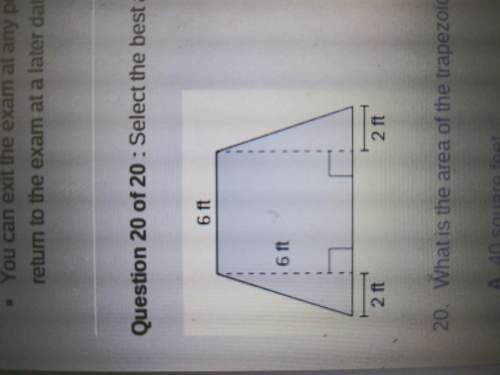Brainliest if correct
transform each of the following equations to determine whether eac...

Mathematics, 09.10.2019 01:00 kaitlksndj
Brainliest if correct
transform each of the following equations to determine whether each has one solution, infinitely many solutions or no solution. use the result of your transformation to state the number of solutions.
1. 2x + 4 = 3(x – 2) + 1
2. 4(x + 3) = 3x + 17
3. 3x + 4 + 2x = 5(x – 2) + 7
4. 2(1 + 5x) = 5(2x – 1)
5. –18 + 15x = 3(4x – 6) + 3x
6. –10 + 5x = 5(x – 3) + 5
7. describe the different types of results that will occur when performing transformations on equations that have one solution, no solutions or infinitely many solutions.
8. write an equation of your own that has one real solution. transform the equation to demonstrate that it has one solution.
9. write an equation of your own that has infinitely many solutions. transform the equation to demonstrate that it has infinitely many solutions.
10. write an equation of your own that has no solution. transform the equation to demonstrate that it has no solution.

Answers: 1


Another question on Mathematics


Mathematics, 21.06.2019 22:00
If x+y+z=0 what is the value of [tex] {x}^{3} + {y}^{3} + {z}^{3} [/tex]
Answers: 2

Mathematics, 21.06.2019 23:50
The graph of a curve that passes the vertical line test is a:
Answers: 3

Mathematics, 22.06.2019 00:00
Asequence has a common ratio of and f(5) = 81. which explicit formula represents the sequence? f(x) = 24 f(x) = 16 f(x) = 24 f(x) = 16
Answers: 1
You know the right answer?
Questions

Biology, 10.09.2021 16:40

History, 10.09.2021 16:40

Advanced Placement (AP), 10.09.2021 16:40



Mathematics, 10.09.2021 16:40

English, 10.09.2021 16:40

Mathematics, 10.09.2021 16:40


Health, 10.09.2021 16:40

Mathematics, 10.09.2021 16:40


Mathematics, 10.09.2021 16:40


Physics, 10.09.2021 16:40

Mathematics, 10.09.2021 16:40


Mathematics, 10.09.2021 16:40


Chemistry, 10.09.2021 16:40




